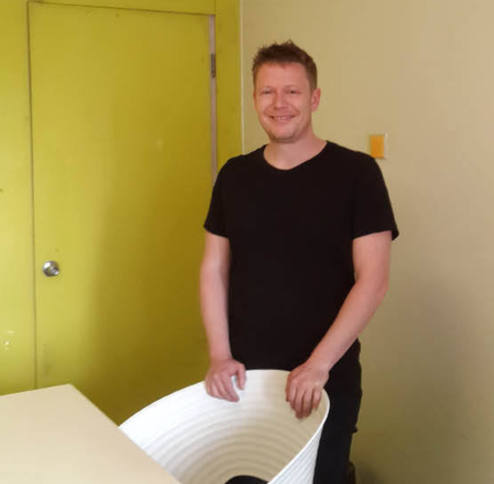“Learning Mandarin Can Be Humbling”
By staff reporter VERENA MENZEL
Chinese is not an impossible language to learn, but the process certainly has its hurdles. German-Austrian Andreas Laimboeck is one person with plenty of stories to share about it.
“Sometimes it is really humiliating,” he said. Once, after four months of full-time Chinese study, Laimboeck tried to ask for the toilet in a Beijing restaurant. Instead of a helpful gesture, the waitress merely shrugged her shoulders. “Experiences like this can be really frustrating.” But giving up? Curling up within the expat community? Laimboeck didn’t consider this an option.
He kept at it and finally found his own way to master the Chinese language, beyond old-fashioned teacher-centered classes and learning characters by rote. That’s when everything clicked into place.
Today, 35-year-old Laimboeck runs his own language school in Beijing, where he shares his experiences with students from all over the world. He calls it LTL – live the language, a name that speaks for itself. Founded in 2008 as a two-man business, he now has 25 employees, including 18 language teachers.
 |
|
Andreas Laimboeck runs a language school in Beijing to share his LTL method with other Chinese learners. |
Laimboeck knows how to cut through the dense forest of Chinese characters and how it feels to smash one’s head into the language barrier before finally being understood.
“For Europeans, the biggest problem with learning Chinese is that we are often unable to reproduce what we have learned in class,” Laimboeck said. One of the main reasons for this is Chinese pronunciation. “Most of the embarrassment for Mandarin learners comes from mispronouncing Chinese tones. You say something you think you’ve already learned, but no one can understand you.”
Chinese syllables are pronounced with one of four tones (five if you count the light tone). Since most Chinese words have two syllables, there are 20 possible tone-combinations. And some of these combinations sound confusingly similar to Western ears.
“That’s why we emphasize correct pronunciation right from the beginning,” Laimboeck said.
